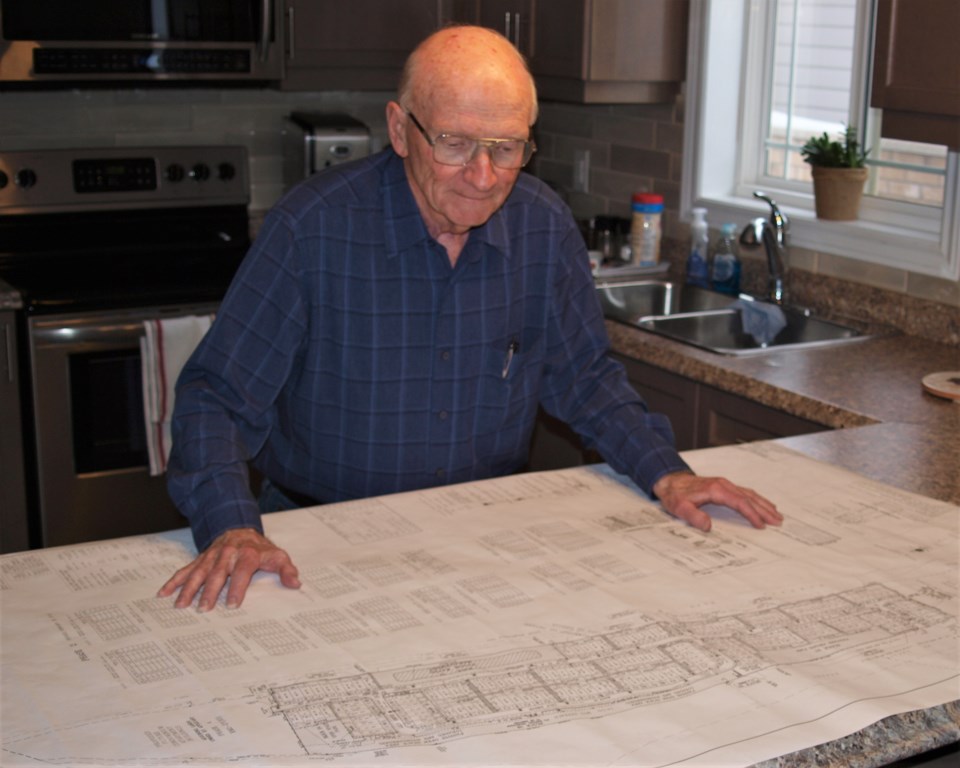A passionate Orillia advocate for tax fairness says local condo owners are not being treated equitably by the city - a problem he says is rampant in municipalities across the province.
To help address that issue, he wants the city to assume responsibility for roads and infrastructure at area condominiums.
Scott MacLagan, who has been fighting to level the playing field for tax-paying owners of common element condominiums (CECs) for three years, is asking the city to step in and step up to pave the way for change.
MacLagan, a resident of North Lake Village at the former Atlas Block property, is the driving force behind the Common Element Condominium Working Group tasked to tackle the issue; that group also includes city councillors Mason Ainsworth and Tim Lauer.
MacLagan made a recent pitch to city council, asking for permission to widen the group’s mandate so it can effect meaningful change.
At the heart of the complex issue is the way condos are developed. Essentially, condo owners pay a monthly fee to maintain the ‘common elements’ which range from roads and sidewalks to maintenance and street lights.
On top of that, the condo owners pay municipal taxes similar to that of a residential homeowner.
“We believe this to be inequitable, unfair and morally wrong,” said MacLagan.
But it is legal because of a single word.
“We now understand that the use of the word ‘private’ with respect to the ‘roadways and underground infrastructure’ is contained in the development agreements between the city and the developers,” MacLagan explained.
“Designating roadways and infrastructure within a CEC as private enables the city to withhold full municipal services to CECs and some horizontally-built standard condos ... despite the fact CEC owners pay full municipal property taxes comparable to other homes of equivalent MPAC assessed value.”
MacLaglan said the CEC concept “forces the establishment of CEC condo corporations” which pass on “additional costs to unit owners in terms of maintenance fees to cover a number of items, including property management, insurance, reserve fund studies, performance audits, street lights, road resurfacing, snow clearing.”
These additional costs do not apply to those who live in a standard subdivision.
Ultimately, the condo corporation owns everything but the home and the land it sits on.
And that could lead to “some degree of failing infrastructure,” said MacLagan, referencing potential broken water mains, sinkholes and other issues.
“The potential for bankruptcy is extremely high because a single condo corporation cannot absorb these costs on its own,” he said, noting it’s “very unlikely” that a condo corporation’s reserve fund would be sufficient to survive major infrastructure replacement or repairs.
That’s why he’s asking the municipality to step up.
“Municipalities should be committed to creating a model whereby condo corporations are able to sustain themselves in the long-term which would mean the municipality assuming, at a minimum, the underground infrastructure and roadways,” said MacLagan.
He asked council to enable the working group and city staff to provide council with a comprehensive report regarding the cost and logistics of the city assuming full responsibility for the specified infrastructure and services.
Specifically, he wants the group to be able to investigate the logistics of the city assuming responsibility for:
- Road maintenance and repair (including snow clearing);
- Walkways and/or sidewalks (including snow clearing);
- Street lights;
- Storm water pond, including landscaping;
- Signage and bollards;
- Water/sewage and underground infrastructure; and
- Sewage lift pump stations (where applicable)
Council decided it would be premature to give the green light to the mandate expansion - at least for now.
Rather, the majority of council, at the urging of Coun. Ainsworth and Coun. Lauer who sit on the working group, voted to refer the idea to the development services and engineering departments so they could study the idea, its impact and potential options.
“It’s important to get staff’s perspective on this,” said Ainsworth.
“For example, if you’re talking about taking over infrastructure, there are potentially some pretty megabucks down the road for the city, so it’s important we make sure to flush out details before we move forward,” Ainsworth noted.
Lauer agreed.
“What’s being asked here is first to expand the mandate so we can look at a possible transfer of responsibility and also three other clauses that are less impactful but deserving of some explanation,” said Lauer.
Those three clauses include:
- Developing communication strategies to “more adequately advise prospective purchasers” of how condo ownership works and associated costs;
- To add a requirement for the developer to supply the condo boards with a quality assurance package including final approved plans for development; and
- To add a requirement for the developer to supply condo boards a ‘quality turnover package’ including revised designs, inspection reports etc as the building process moves forward.
